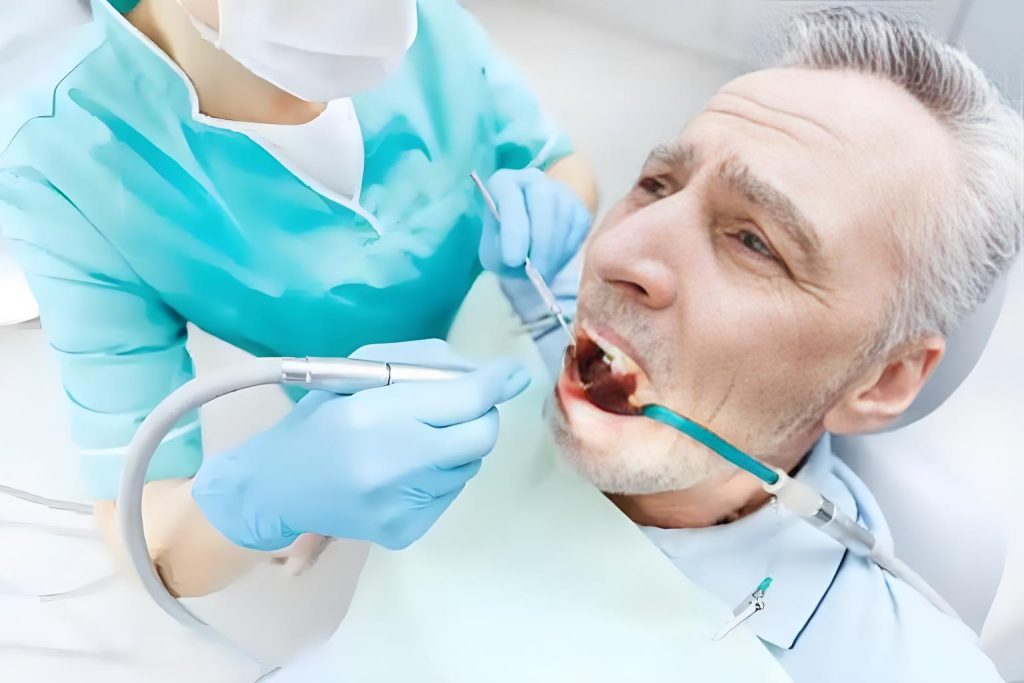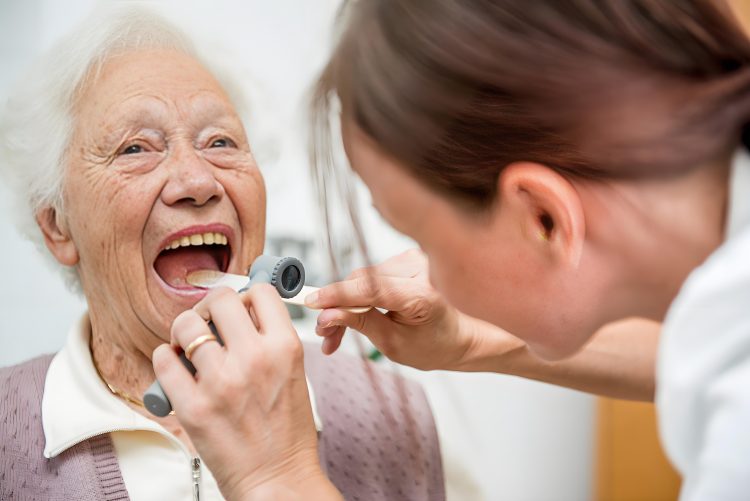As we age, our bodies undergo various changes, and our oral health is no exception. The elderly population is particularly susceptible to a range of oral diseases that can significantly impact their quality of life. From tooth decay and gum disease to oral cancer and tooth loss, these conditions can lead to pain, difficulty eating, and even social isolation. However, with proper prevention and care, many of these issues can be avoided or managed effectively. This comprehensive guide aims to educate seniors and their caregivers about the importance of oral health, the common diseases affecting the elderly, and effective prevention strategies to maintain a healthier smile.

Understanding the Changes in Oral Health as We Age
Aging brings about numerous physiological changes in the oral cavity. These include:
- Dry Mouth: Saliva plays a crucial role in maintaining oral health by washing away food particles and bacteria, neutralizing acids, and protecting teeth from decay. However, many older adults experience dry mouth (xerostomia) due to medications, medical conditions, or a reduced ability to produce saliva.
- Receding Gums: With age, gums may pull away from teeth, exposing the roots, which are more susceptible to decay and sensitivity.
- Wear and Tear on Teeth: Over time, teeth can wear down, crack, or become loose due to long-term grinding, clenching, or tooth decay.
- Decreased Sensation: Older adults may have reduced sensation in their mouths, making it harder to detect pain or discomfort.
- Medical Conditions and Medications: Chronic diseases like diabetes and heart disease, as well as medications taken for these conditions, can affect oral health.
Common Oral Diseases in the Elderly
- Tooth Decay
- Cause: Tooth decay occurs when acids produced by bacteria in plaque attack tooth enamel, leading to cavities. Dry mouth, poor oral hygiene, and a diet high in sugary foods and drinks increase the risk.
- Prevention: Regular brushing and flossing, using fluoride toothpaste and rinses, and limiting sugary snacks can help prevent tooth decay.
- Gum Disease (Gingivitis and Periodontitis)
- Cause: Gingivitis is inflammation of the gums caused by plaque buildup. If left untreated, it can progress to periodontitis, a more severe form that affects the bones and tissues supporting teeth.
- Prevention: Daily brushing and flossing, along with regular dental check-ups and cleanings, are crucial. Early diagnosis and treatment of gingivitis can prevent it from advancing to periodontitis.
- Oral Cancer
- Cause: Risk factors for oral cancer include smoking, excessive alcohol consumption, poor oral hygiene, and certain genetic predispositions.
- Prevention: Regular dental check-ups, avoiding tobacco and excessive alcohol, and maintaining a balanced diet can reduce the risk. Early detection is key to successful treatment.
- Tooth Loss
- Cause: Tooth loss can be caused by gum disease, tooth decay, trauma, or advanced wear and tear.
- Prevention: Maintaining good oral hygiene, having regular dental check-ups, and addressing dental issues promptly can help prevent tooth loss. Dental implants, bridges, or dentures may be necessary for replacing missing teeth.
- Oral Infections
- Cause: Older adults may have a weakened immune system, making them more susceptible to oral infections like fungal infections (e.g., thrush) or bacterial infections in the mouth.
- Prevention: Good oral hygiene, proper nutrition, and managing underlying medical conditions can help prevent these infections.
Effective Prevention Strategies for a Healthier Smile
- Brush and Floss Daily
- Importance: Regular brushing and flossing remove plaque and food particles that can lead to tooth decay and gum disease.
- Tips: Use a soft-bristled toothbrush and fluoride toothpaste. Floss daily to clean the spaces between teeth and under the gum line.
- Use Antimicrobial Mouthwash
- Importance: Antimicrobial mouthwash can help reduce plaque and bacteria in the mouth.
- Tips: Choose a mouthwash with fluoride if recommended by your dentist. Avoid alcohol-based rinses if you have dry mouth.
- Stay Hydrated
- Importance: Saliva helps protect teeth from decay. Keeping your mouth moist is essential, especially if you have dry mouth.
- Tips: Drink plenty of water throughout the day. Suck on sugar-free candy or chew sugar-free gum to stimulate saliva production.
- Eat a Balanced Diet
- Importance: A nutritious diet supports overall health, including oral health.
- Tips: Limit sugary snacks and drinks. Choose foods that are rich in vitamins and minerals, such as fruits, vegetables, lean proteins, and dairy products.
- Regular Dental Check-ups and Cleanings
- Importance: Early detection and treatment of oral diseases can prevent more serious problems.
- Tips: Schedule regular dental check-ups and cleanings, even if you don’t have any pain or discomfort. Discuss any concerns or changes in your oral health with your dentist.
- Manage Underlying Medical Conditions
- Importance: Chronic diseases like diabetes can affect oral health.
- Tips: Follow your doctor’s recommendations for managing your medical conditions. Inform your dentist about any medical conditions or medications you are taking.
- Avoid Tobacco and Limit Alcohol
- Importance: Tobacco and excessive alcohol consumption increase the risk of oral cancer and other oral diseases.
- Tips: Seek support to quit smoking or using other tobacco products. Limit alcohol consumption to moderate levels.
- Use Dental Aids if Needed
- Importance: Dental aids like electric toothbrushes, interdental brushes, or water flossers can make oral hygiene easier and more effective.
- Tips: Consult your dentist to determine which dental aids are best suited to your needs.
- Address Dental Problems Promptly
- Importance: Ignoring dental problems can lead to more serious and costly issues.
- Tips: Schedule an appointment with your dentist if you experience pain, swelling, bleeding, or any other changes in your oral health.
- Caregiver Involvement
- Importance: For older adults with mobility issues or cognitive impairments, caregiver involvement is crucial for maintaining oral hygiene.
- Tips: Educate caregivers about proper oral hygiene techniques and the importance of regular dental check-ups. Encourage them to assist with brushing, flossing, and dental appointments as needed.
The Role of Dentists in Preventing Oral Diseases
Dentists play a vital role in preventing oral diseases in the elderly. Regular dental check-ups allow for early detection and treatment of problems, such as tooth decay, gum disease, and oral cancer. Dentists can also provide personalized advice on oral hygiene techniques, dietary changes, and the use of dental aids.
Moreover, dentists can work closely with medical professionals to manage the oral health of patients with chronic diseases like diabetes and heart disease. By coordinating care, healthcare providers can ensure that patients receive comprehensive treatment that addresses both their oral and overall health needs.
Conclusion
Maintaining good oral health is essential for the overall well-being of older adults. By understanding the changes that occur in the oral cavity as we age and adopting effective prevention strategies, many oral diseases can be avoided or managed effectively. Regular dental check-ups, proper oral hygiene, a balanced diet, and the involvement of caregivers where needed are key to maintaining a healthier smile as we grow older.
Remember, oral health is not just about having a nice smile; it’s about preserving the ability to eat, speak, and socialize comfortably. By taking care of your oral health, you can enjoy a higher quality of life and maintain your independence for longer.













































Discussion about this post